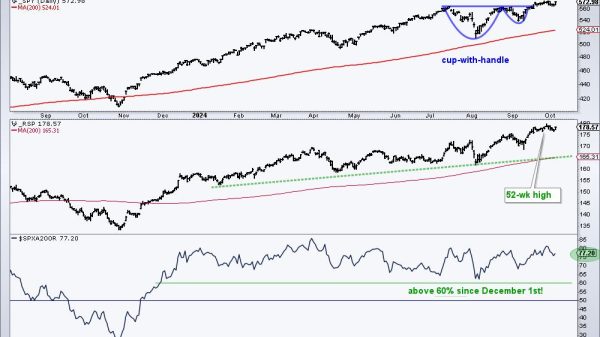Clark Packard
Five years ago next month the Trump administration began an aggressive trade war with China over a number of Beijing’s abusive trade and investment practices. The tariffs caused predictable retaliation imposed enormous costs on the U.S. economy, particularly manufacturing, and perhaps worst of all, failed to discipline Beijing’s legitimately troubling high tech mercantilist practices. Despite calling the Trump administration’s China tariffs “damaging” “reckless” and “disastrous” on the 2020 campaign trail and despite high inflation, President Biden has not reversed course and indeed has embraced more restrictions on international commerce and continues to spurn allies who share American concerns. Today, export controls and investment restrictions continue to proliferate. Meanwhile Congress has passed massive subsidies to reshore semiconductor production in the United States—mimicking the same type of heavy‐handed industrial policy increasingly embraced by Beijing. These policies are woefully misguided; a new approach is desperately needed.
Amidst this worrisome backdrop, my Cato colleague Scott Lincicome and I released a new policy analysis today entitled “Course Correction: Charting a More Effective Approach to U.S.-China Trade.” The analysis acknowledges a number of troublesome practices employed by Beijing but offers a radically different approach to international trade and investment between the world’s two largest economies. Instead of doubling down on government intervention in the economy, we argue the United States should embrace its traditional strengths: openness to trade, investment, and immigration; a relatively light touch technology policy and tax reforms to bolster American competitiveness. Simply put, the United States should outcompete China and the way to do that is through a commitment to markets.
Over the long term, U.S. policies that restrict trade and investment, dissuade talented foreigners from coming to the country, and crack down on America’s most globally competitive and innovative firms is a recipe for stagnation. Our policy analysis provides a roadmap to policymakers looking for a more productive and effective approach to the U.S.-China economic relationship. Read the whole thing here.




















